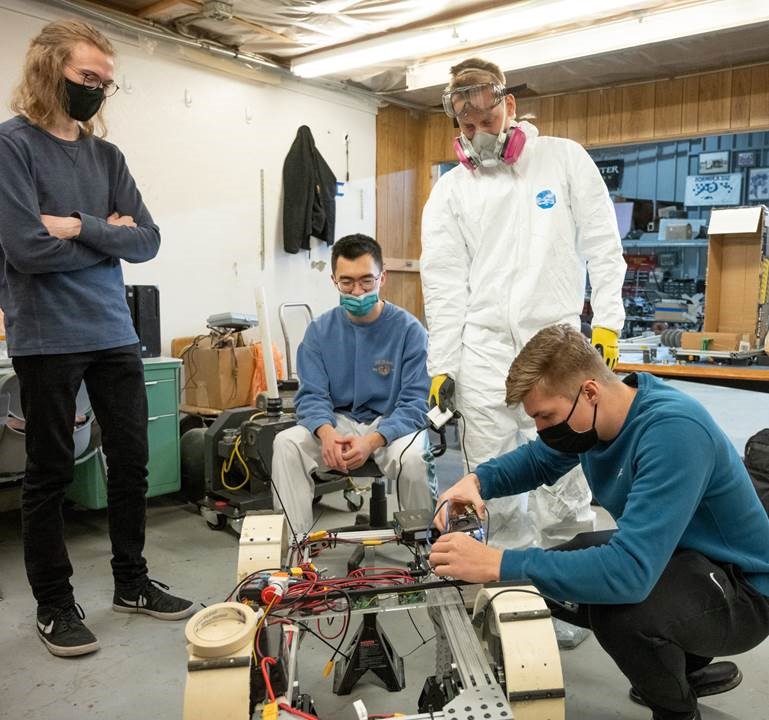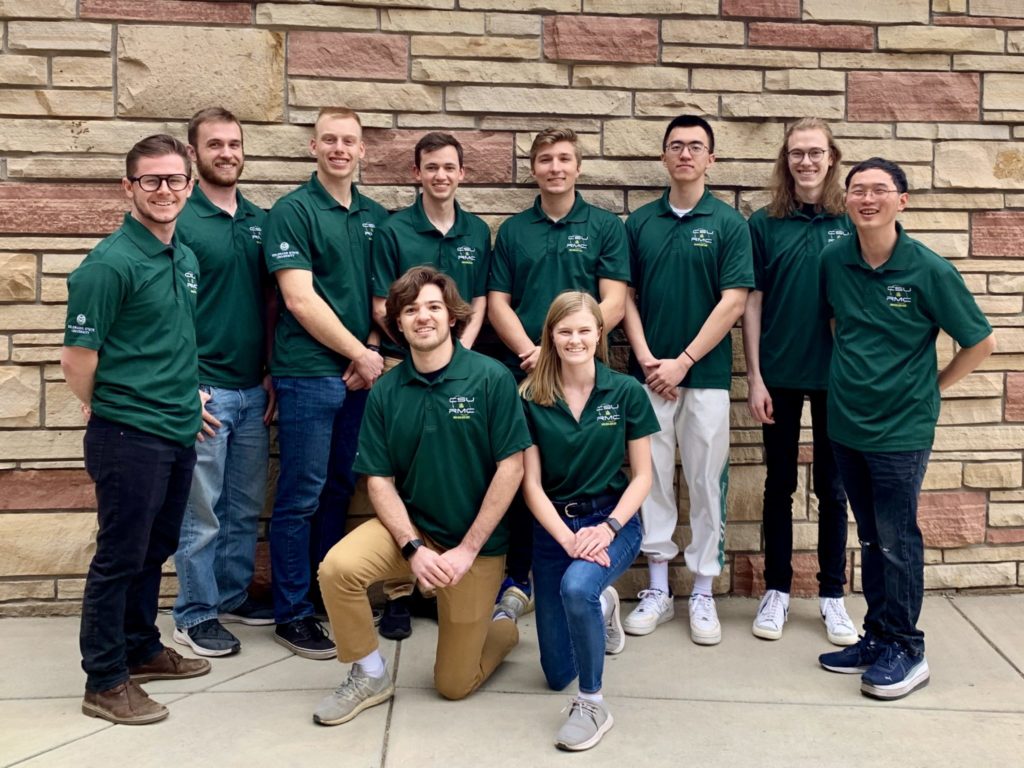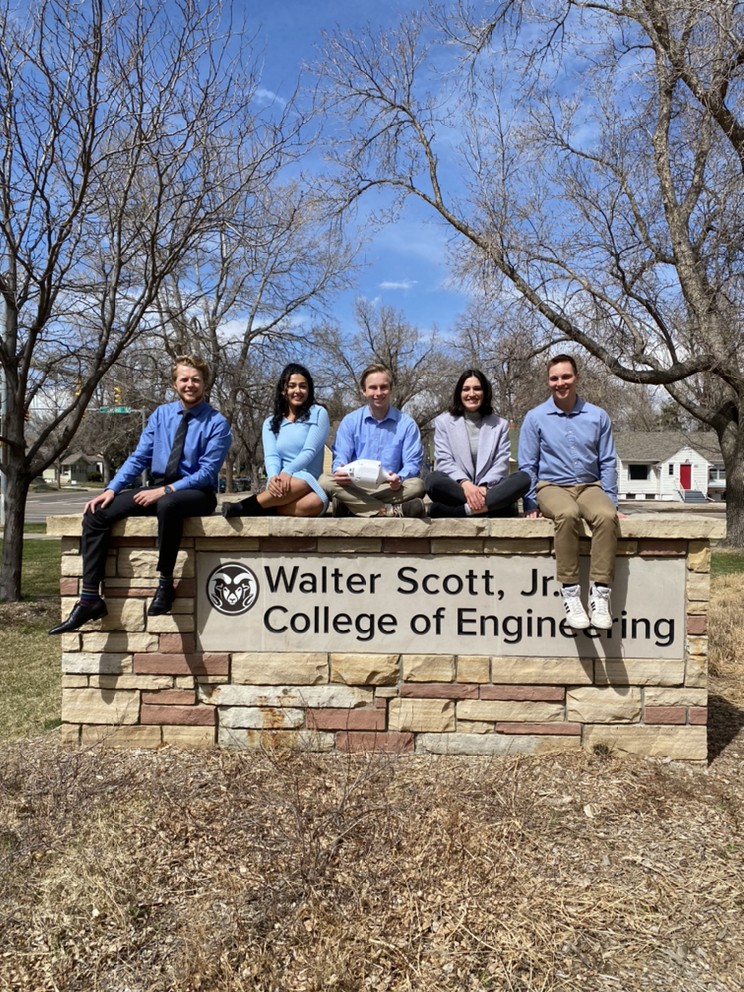A regenerative braking skateboard. An autonomous mining robot for NASA. Algae that can serve as a source of food and oxygen on Mars. An instrument that “smells” breath to detect a person’s health.
Nearly 500 graduating engineering seniors will display these projects and many more at this year’s Engineering Days, or E-Days, on Friday, April 22, at the Lory Student Center. The event is 9 a.m. to 3 p.m.
Students, faculty and staff are looking forward to being together again for the decades-old annual tradition, which is hosted by the Engineering College Council.

“This is such an important experience for our students, and the culmination of much hard work,” said Dean David McLean. “Students take a lot of pride in their projects. These senior projects give our students real-world experiences in what they’ll be doing as future engineers. Alumni often talk with me about this being the most memorable event in their college careers.”

More than 100 student teams will showcase their capstone projects. Projects are often multi-disciplinary and involve corporate sponsors and industry partners. On display will be projects from biomedical, civil and environmental, chemical and biological, electrical and computer, and mechanical engineering.
“I’m definitely excited for E-Days,” said Carissa Vos, a senior in mechanical engineering. “I’m looking forward to participating in E-Days as a senior and seeing all the other innovative projects!”
Vos leads a team of 10 electrical/computer and mechanical engineering students. They’re spending most of April refining and testing their autonomous mining robot to prepare for E-Days and eventually NASA’s LUNABOTICS competition at Kennedy Space Center in May. Like many senior design projects, the mining team had a corporate sponsor – Allied Electronics and Automation of Fort Worth, Texas.
Individual engineering departments honor top E-Days projects with awards, and some students even get to compete for up to $5,000 in venture funding on a small-scale, friendlier version of “Shark Tank.” Students can apply each year to pitch an entrepreneurial idea judged by industry leaders.

“Senior design teams apply for these grants based on having an idea for a technological solution to a customer need that they would like to explore from an engineering and a business standpoint as their senior design projects,” said Bert Vermeulen, who teaches a technology entrepreneurship course in the college. Student teams also must participate in the Venture Validator program run by the CSU Institute for Entrepreneurship through the College of Business.
This year’s selected projects for venture funding:
- Sniftek: Developing an instrument for determining health status by electronically “smelling” someone’s breath (biomedical engineering students also pursuing degrees in chemical, mechanical and electrical/computer engineering).
- Crosslinked Components: Started by three seniors who have gone from idea to first customer shipments in seven months. Their product is a guard that fits around the rear swingarms of a motorcycle to prevent them from getting damaged during hard enduro riding (mechanical engineering students).
- H2O & Go: A project to build and test a wheelchair that can be used by a paraplegic person to move themselves on land and water (mechanical and biomedical/mechanical engineering students).
- Regenerative Braking Skateboard: Like an electrical/hybrid vehicle, the skateboard regenerates energy through breaking. They have built working prototypes and have been gathering customer feedback (electrical/computer engineering and mechanical students)
- Magna-Shox: Started by a mechanical senior who recruited four other mechanical engineering students to understand the control systems needed to use electromagnetic shock absorbers on electric vehicles.